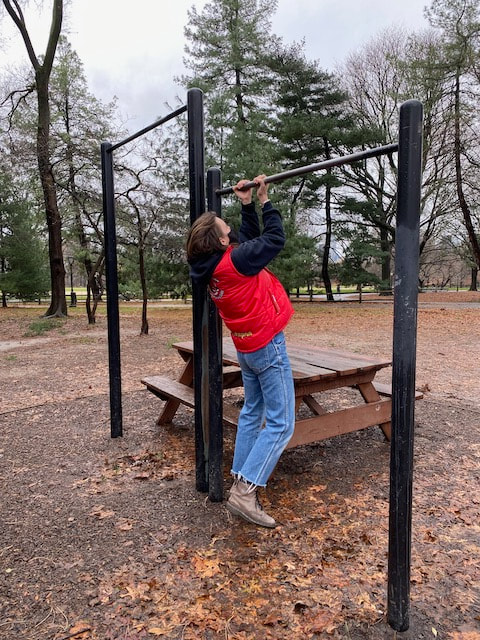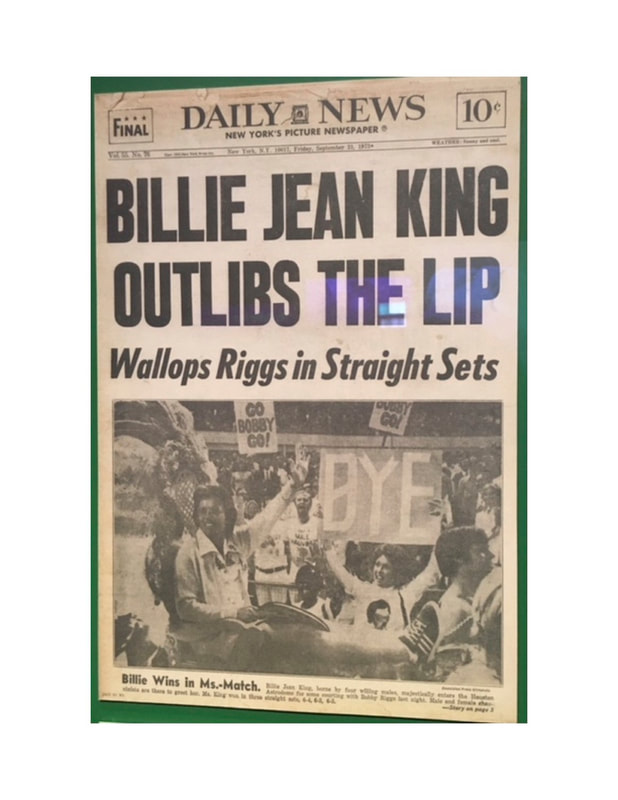|
The rules of being charismatic, let alone just plain interesting, on a zoom or webex call are not what they used to be when we met in person. Indeed, the rules have shifted dramatically and it's smart to know them! Here's a short read which might help you get the next deal, the next promotion, the next job or the next insight.
Read, "Do You Have E-Charisma on Zoom? Here’s How to Get It" by Ray A. Smith, WSJ (subscription required to read full article)
0 Comments
After putting time, effort, and care into your job, you may be ready to ask your superior about a promotion. However, before beginning this conversation, you’ll need to prepare properly. To ensure the best chance of success, follow these tips from a career coach.
Do: Be smart about when you schedule the meeting. Whenever you want to have a meaningful or important discussion, timing is critical. If you bring up the conversation unexpectedly, your boss might be distracted or ill-prepared, which could hinder your chances of getting the promotion. Instead, look at their calendar to see when they have available time slots. Before sending the meeting invitation, send a quick message to check that they don’t typically take their lunch or have other engagements at the time. This will ensure their full attention remains on you and the conversation. Gather supporting materials. Asking for a promotion is just like pitching a product—you need to prove to the recipient why they should invest in what you have to offer. Prepare for the meeting by gathering supporting documents or resources that prove your effectiveness in your current role, as well as those that would easily translate to the new position. This may include performance reviews and reports showing a tangible increase, such as ever-growing sales reports. Don’t: Forget to practice. Once you’ve scheduled the meeting, go home and prepare your presentation. Outline why you think you deserve the position and highlight some reasons why you want it. Then, practice to a friend, family member, career coach, or yourself in the mirror. Look out for verbal fillers, such as “um” or “uh,” which could indicate nervousness. You don’t need to have the entire presentation memorized, but practicing beforehand will ensure you hit the critical points needed to drive home the proposal. Lose your cool. Regardless of what your manager says during the meeting, remain calm and collected. Even if you feel disappointed, try to avoid arguing. In most cases, this will likely harm the potential for any future openings you might be considered for. Instead, thank them for their time and let them know you’d appreciate consideration in the future.  2021 is hours away and there is an expectation that good things will happen, like the vaccine and the ability to travel again. But, most good things will happen because we did something to make them happen. We will have to get out of our comfort zone, show up, take a bold step, try something new, remain curious and learn from our mistakes. Doing pull-ups may not be your thing but setting some reasonable goals and acting on them will ensure that the New Year is what you want it to be. Volunteers help communities with critical work, such as serving on boards of worthy organizations, fundraising for important causes, donating time to mentor students, and cleaning up public areas for a safer, more beautiful neighborhood. Many retirement coaches suggest volunteering once someone has stopped working due to the long list of benefits for a person’s health and wellness. Here’s why you should take up community service as you get older. How Does Volunteering Benefit Retirees?1. It Boosts Brain PowerStaying active and doing volunteer work promotes cognitive health. Productive tasks have been proven to keep issues like memory loss at bay as you age. The socialization involved in collaborative tasks can also reduce feelings of isolation, especially in times of crisis, such as COVID. 2. It Helps You Stay Active Getting older can sometimes make physical activity harder, if not challenging. But when you sign up as a volunteer, it’s easier to keep moving because there’s a purpose behind it. A lot of volunteer work will get you out of the apartment or out of the house and give you the chance to walk around the community, clean up a park, plant flowers, collect donations, or help out a local church or soup kitchen. There may even be opportunities to improve fitness while making a difference, such as volunteering with recreational youth sports teams who need extra hands during this time of social distancing.
3. It Connects You With All AgesThere doesn’t have to be a generation gap between young and old acquaintances. Retirement is an excellent time to connect with younger people. Volunteering and working with a variety of age groups allows everyone to get to know and understand different backgrounds and perspectives. Each group can offer life experience to expand everyone’s knowledge and respect for each other. In recent months, pandemic-related restrictions have urged many hiring managers to shift their interview processes to online video platforms. While these video conferences run similarly to an in-person meeting, career advisors say they can present unique challenges to candidates who aren’t yet familiar with the technology. If you’re new to the experience, here are a few ways to plan for a successful online video interview.
How to Prepare for Your Next Video Interview 1. Coordinate the Setting Although you may be working from home, your camera should present a strictly professional environment to the employer. Before the scheduled call, turn the webcam on and see how you and your surroundings appear on screen. Apart from tidying up the area, make sure you’ll be well-lit and free from other distractions — such as kids and pets — during the interview. 2. Wear a Nice Outfit In general, your interview outfit should look slightly more professional than what the current employees wear daily. While the outfit should be clean and pressed, also choose clothes that are comfortable. Otherwise, you may end up adjusting the outfit throughout the interview. 3. Look at the Camera Career advisors often encourage their clients to maintain eye contact during in-person interviews to create a connection. However, when staring at another person’s eyes through a video chat platform, you may not look like you’re maintaining a focus. In these situations, the best way to establish eye contact is to stay focused on the camera lens and avoid looking directly at others’ faces on the screen. 4. Optimize Your Audio Even when using high-resolution video, the interview won’t go far if the other end can’t hear you clearly. Since it can be hard to maintain proper volume and clarity with a built-in computer mic, it’s better to speak through Bluetooth-enabled earbuds. These devices will pick up your voice with precision and reduce background noise. 5. Practice With a Friend In the days leading up to your interview, arrange to have a practice session with a friend. During the practice call, your friend can walk you through questions so that you have time to prepare thoughtful answers. They can also highlight any lingering audio or video issues that should be fixed before the interview. There are thousands of great coaches teaching kids and adults how to play a sport, motivating them with enthusiasm and dedication to learn the rules and excel at the game. Teamwork, sportsmanship, a strong “work” ethic and development of other important lifelong skills are a natural outgrowth of working with a good coach.
But we’ve definitely had our share of recent news about bad coaches. Iowa just fired its longtime football strength and conditioning coach, Chris Doyle, after numerous players accused him of abusive behavior, including racist comments. And last month, Salim Valji reported in The New York Times that Bill Peters, a former coach in the National Hockey League, was accused of referring to a player, Akim Aliu, with a racial slur. Peters resigned shortly after the accusations. For years, women’s gymnastics coaches have been brutal with their young athletes. According to Juliet Macur, a top coach for the Olympic champion Laurie Hernandez was recently suspended for eight years for emotional and verbal abuse. Another gymnastics coach was suspended in May after a complaint was filed — with input from 33 gymnasts, nine associated family members and five coaches — listing a litany of abuse spanning 15 years. Then there are the runners, like Mary Cain, who spoke with T Minsberg about working with coach Alberto Salazar, saying he had physically and emotionally broken her spirit. Cain recounts that she stopped menstruating for three years, broke five bones due to osteoporosis, and began to feel suicidal as a result of his treatment. Salazar, who has apologized for his “callous remarks,” has been barred for four years for violating anti-doping rules. He has denied abusing Cain. But — much like the #BlackLivesMatter and #MeToo movements — shortly after Cain shared her story, many other runners stepped forward to share their own stories and criticize Salazar’s methods. Basketball and soccer are not immune from claims of bad coaches, whether in the professional or amateur arena. And kids are particularly prone to the consequences of bad coaching. As reported in The New York Times, of the more than 45 million children engaged in youth sports, an estimated 70% will drop out by the age of 13. Why? A big reason is that many of the kids’ coaches are inexperienced, with little relevant training. They often focus on winning, rather than learning and development. “I have watched coaches scream at their team of 10-year-olds that they weren’t aggressive enough,” reports Dr. Jennifer Etnier. Of course, this is not to say there aren’t thousands of good coaches. Take Muffet McGraw, the Hall of Fame coach and a champion for women all over the world, who retired in April after 33 years coaching the women’s basketball team at Notre Dame. Or Perry Fewell, the head coach for the Carolina Panthers, who was recently promoted to an important position in the NFL according to El belson. This said, the era of patiently absorbing the humiliation, torment and abuse of a coach — much like the torment and abuse of police officers or movie moguls — should be over. If you’re looking for a good sports coach, especially where young people are involved, remember that a winning record doesn’t necessarily mean a “winning” experience in which your growth, joy and confidence are nurtured. These qualities should remain paramount in the minds of anyone seeking a coach, whether for sports, careers or other matters. Parsing out the elements of good judgment is helpful in allowing leaders to improve when they’re using it and when they’re not. In The Elements of Good Judgment – How to improve your decision-making by Sir Andrew Likierman (Jan-Feb 2020 Harvard Business Review), he states that “leaders with good judgment tend to be good listeners and readers. They are able to hear what other people actually mean, and thus able to see patterns that others do not.” The six elements of good judgment Likierman points out bear mentioning:
Read the full article (via Arden Coaching)
 In September 1973, Billie Jean King, the world’s number one tennis player, played ex-champ Bobby Riggs, who had boasted that — even at age 55 — he could beat any woman. King was reluctant at first to take on the challenge but, as people know from watching “Battle of the Sexes” or living through that era, she walloped Riggs in three straight sets in front of 90 million TV viewers. Apart from this well-televised victory, King was the first sportswoman to top annual earnings of $100,000. She broke down barriers in her push for equal prize money for women. On a very different playing field, Janet Yellen became the first woman to serve as chairman of the Federal Reserve Board since it was founded 100 years ago. Unlike King, Yellen rarely inserts herself into the "gender wars,”* but has become an icon to many because of her intellect, even-keeled demeanor, fierceness and ability to get the job done. Even President Trump, who is replacing Yellen despite her successful tenure on the Board, said she is an “absolutely spectacular person.” Women need strong women role models in their careers and in life. Both King and Yellen fit the bill; in their respective worlds and eras, they were up against men, performed at their best, stayed calm, overcame hurdles and won in more ways than one. The US Open Tennis venue is named after King, and books, movies and museum exhibits, like the current one at the NY Historical Society, highlight her accomplishments. Yellen, a powerful woman in a tough job, has capably shaped US economic policy for years, following the crushing recession of 2008, and the economic path she charted is likely to be followed by her successor. There are many role models, male and female, and their influence can be strong and inspiring. Fortunately, we don’t lose them when they take leave of their “game” or the world's stage. Think of Eleanor Roosevelt, Sally Ride, Ann Richards, Winston Churchill and Derek Jeter to name just a few. As the new year starts, may you enter it with your own good and vibrant role models who speak to your soul and to an excellent vision of yourself. And make sure you also are a positive role model for those coming behind you. Read, "A Feminist Hero, Not by Design" (The New York Times) Going, going... and the coach is gone.
Before last week, the Giants' much-heralded and popular football quarterback, Eli Manning, had started in a staggering 210 consecutive games. Then, on November 29th, Manning was benched by Coach Ben McAdoo, the first time Manning would not start a game since 2004. The fans did not like it one bit even though the team's 2-10 win/loss record was miserable. The next day, the Giants' ownership abruptly fired McAdoo with four games left in the season. (A Giants' coach had not been fired mid-season since 1976, over 40 years ago.) And Manning, despite the Big Blue's poor season, started in the game against Dallas on December 10th. What happened? It appears that part of the reason McAdoo was fired was his poor communication and EQ skills (aka emotional intelligence). "He was stiff, humorless and obsessively guarded at news conferences. His communications skills — with the news media and eventually with many of his players — never developed into a strength." (The New York Times 12/5/17). Without good communication skills, let alone emotional intelligence, building a successful team, a successful fan base or a successful career, is that much more difficult. Eli Manning, I suspect, has excellent communication and EQ skills; his years of success in the game, his enduring (for the most part) popularity with fans, his demeanor on and off the field and his many endorsements of high-end products, all support this conclusion. So does Manning's response to McAdoo's upsetting coaching decision to bench him for a game — no tantrums, no blame game and no bitterness. If you communicate well and have good emotional intelligence, great. If not, you probably are fighting battles you might otherwise avoid and should consider some coaching to get you there. Consider who got the pink slip on the Giants' roster. And, while you're at it, consider why Joe Girardi, who was very successful in many ways, didn't get his contract renewed. |
Margaret EnloeI'm an executive coach who works with clients on leadership and transition challenges, including retiring with enthusiasm and ease. Blog Categories
All
Archives
June 2023
Articles |



 RSS Feed
RSS Feed
